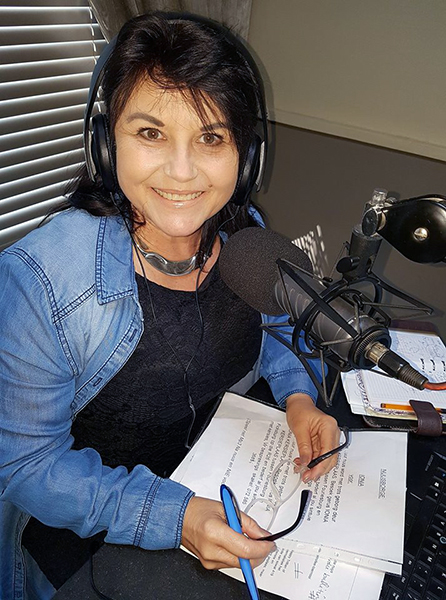Latest News Archive
Please select Category, Year, and then Month to display items
12 October 2020
|
Story Dr Cindé Greyling
|
Photo Supplied
 Exercise and nutrition can work wonders for your mental health – you don’t even have to ‘feel like’ or ‘enjoy’ moving around and eating well for it to work – it does its thing anyway.
Exercise and nutrition can work wonders for your mental health – you don’t even have to ‘feel like’ or ‘enjoy’ moving around and eating well for it to work – it does its thing anyway.
Nowadays, people talk about mental health like it is the common cold – which is good! But do you know what it really means? Being mentally healthy does not only refer to the absence of a mental illness but includes your emotional and social well-being. One would almost want to add physical well-being too, since a healthy body does indeed support a healthy mind. However, since so many people consider themselves ‘mental health experts’, some myths have been sold as truths.
Myth #1 – You are doomed.
Nope. Never. You are never doomed. There is always help. Mental-health therapies range from self-help, talk therapy, medication, to hospitalisation in some cases. Somewhere on this spectrum of treatments, there will be something that works for you. But you must be willing to get the help and do the work. For starters, exercise and nutrition can work wonders – you do not even have to ‘feel like’ or ‘enjoy’ moving around and eating well for it to work – it does its thing anyway.
Myth #2 – It won’t affect you.
It may. Research suggests that one in five people may suffer from a mental illness at some point in their lives. Being well now does not mean that it will stay that way. Biological and environmental factors both impact your mental health. Hopefully not, but at some point, you may experience an event that affects your mental health.
To remain integrated in a community is always beneficial
for anyone suffering from a mental or physical condition.
Myth #3 – Someone struggling with mental health must be left alone.
Hardly! To remain integrated in a community is always beneficial for anyone suffering from a mental or physical condition. You do not need to fix them, but to remain a friend. Continue to invite them, even if they decline. Do not judge, and do not try to understand. Just stay around.
Go and be kind to yourself, and to those around you.
Academic volunteers time on community radio
2017-12-25

Dr Marian Human-Nel
Photo: Supplied
Superior Scholarship. Human Embrace. Institutional Distinctiveness. Emergent Leadership. Public Service.
These are the core values underpinning both the university’s academic and human projects. It is the last one, public service, that resonates well with Dr Marian Human-Nel. She does her part as a radio presenter and news reader on Maluti FM 97.1, a Bethlehem-based community radio.
“As a community radio station, we are not only responsible for entertaining and informing the public, but we also do a lot of community fundraising projects. We also do a lot of wellbeing activities in the Eastern Free State,” said Dr Human-Nel, Subject Head and Lecturer in the Department of Afrikaans, Dutch, German and French on the Qwaqwa Campus.
Sharing of information and knowledge
Dr Human-Nel volunteers her services as presenter of two programmes. “I present Kollig in which I invite my Qwaqwa Campus colleagues and professionals in the community to talk about their specific fields of interest and research. The focus here is on information and sharing knowledge. We have a slot called ‘This Week in History’ written and prepared by my colleague from the History department.”
Another show that Dr Human-Nel presents is called Fluit-Fluit Storietyd on which she reads and does voice performance of Afrikaans short stories and poems with specific music. “The Fluit-Fluit programme informs and entertains through cultural activities,” she said.
Maluti FM broadcasts over a 160-kilometre radius around Bethlehem and is also available online.